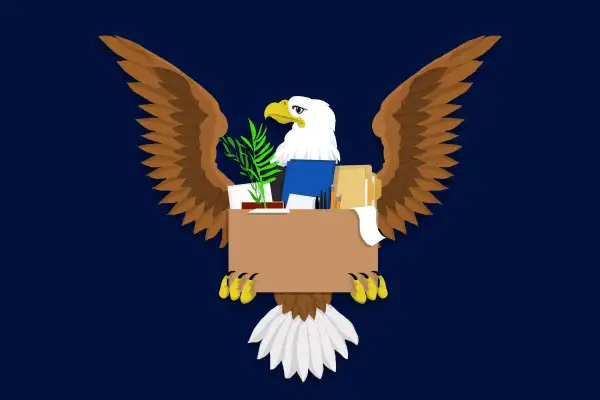Here Are Every State's Unemployment Rules for Work Search and Waiting Periods

In the midst of a global pandemic, states are making it easier for people to collect unemployment benefits by waiving long-standing policies — changes that should make the process less stressful, so long as applicants know they exist.
On March 12, the U.S. Department of Labor issued guidance advising states to ease their unemployment criteria in response to coronavirus-related challenges. Since then, most states have waived the week-long waiting period — a hiatus before benefits kick in — and the requirement that recipients prove they're looking for a job while collecting unemployment. Some have removed these policies completely, while others have waived them with caveats, like whom the waivers apply to and for what period of time they're in effect.
But these changes aren't always clearly indicated on state websites, which still outline pre-coronavirus policies. Money combed through unemployment web sites and documents to find out which programs have and have not waived the policies, and to what extent.
Here’s where the states stand as of the last week of May.
States Waiving Work Search Requirements for Unemployment Benefits
People applying for unemployment benefits would usually be required to look for a job on a weekly basis and log their work search activities.
This could be a pointless undertaking if your industry isn't hiring right now, or if you have your own job to return to once businesses start opening up again. A number of states, including New York, are exempting furloughed employees from their unemployment work search requirement — that means you wouldn't have to look for a job if your employer has told you it expects to rehire you as the coronavirus slows down. But like many states, New York is only extending this leniency to workers who are out of work as a result of the coronavirus.
Other state programs are waiving the job-search requirement for a limited period of time (as least for now). In Florida, for example, the waiver applies only to unemployment claims filed before May 30. If you live in a state whose waiver expires, shown in green in the map below, you should check back as the scheduled end date approaches. Many places have extended (or completely removed) any time limits, as uncertainty around the pandemic continues.
Note that, even if you live in a place like Texas or California — where the job search requirement has been scrapped completely — you might still need to register through your state's job search portal to receive benefits. To find out for sure, head to the link in your state description in the map above.
States Paying Unemployment Benefits Without a One-Week Waiting Period
Pre-coronavirus, you might have had to go through an unpaid weeklong waiting period while the agency certified your claim. Not all states had this waiting period in place. But for the ones that did, the U.S. Department of Labor encouraged a change.
“[The one-week waiting period] is not federally required, although it is a longstanding practice in the [Unemployment Insurance] program that may give states time to assess eligibility and deter fraud,” the guidance reads. “However, to facilitate individuals’ ability to comply with quarantine orders, states should consider temporarily waiving such requirements.”
Given the number of unemployment claims coming through, many state programs are facing a massive backlog of applicants, meaning you might already be waiting longer than usual for your benefits to kick in. This waiting period would add another week on top of that delay — unless your state is one of the many that waived it to help deal with the ongoing crisis.
Waiving the waiting period also ensures that you get the additional weekly $600 benefit — promised through July 31 by the Coronavirus Aid, Relief, and Economic Security (“CARES”) Act — one week sooner.
Anyone applying for these benefits should be aware that these waivers are "temporary," in that they’re applicable so long as the COVID-19 pandemic continues ...however long that might be. If and when your state is no longer in a state of emergency, you should check back to see whether the waivers still apply.
More from Money:
Why Everyone Should Be Asking for Cheaper Car Insurance Rates Right Now
